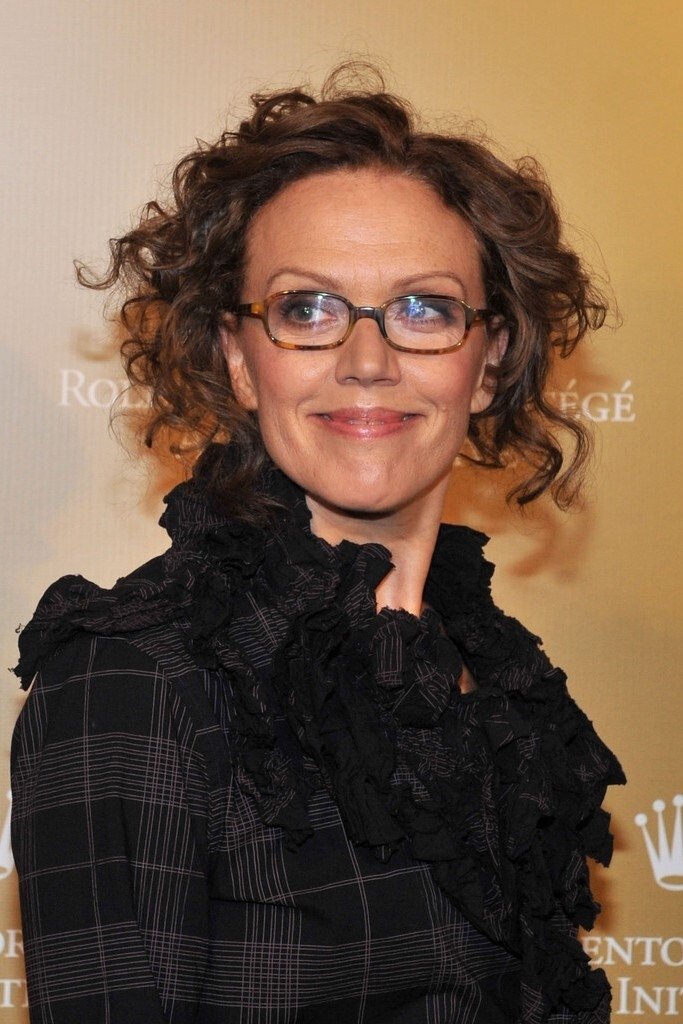
An exploration of Soviet director Sergei Eisenstein's notes and drawings for a science fiction movie that he pitched to Paramount in 1930 about the residents of a skyscraper with walls and floors of clear glass.
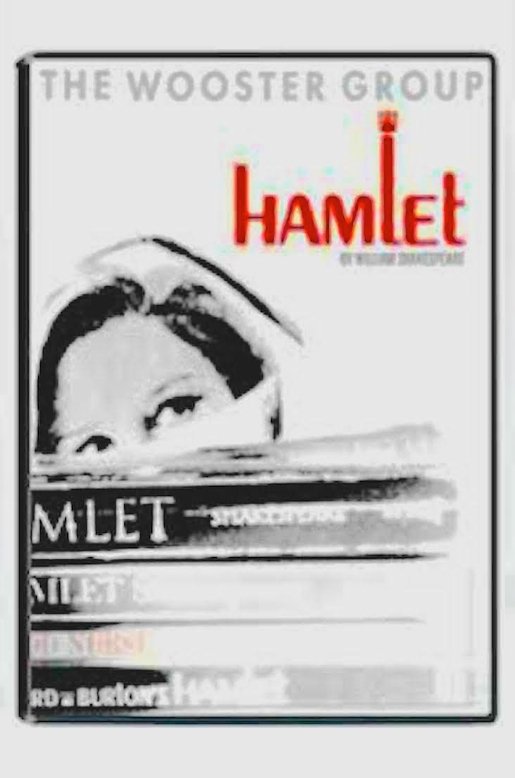
In The Wooster Group’s HAMLET, Shakespeare’s classic tragedy is re-imagined by mixing and repurposing Richard Burton’s 1964 Broadway production, directed by John Gielgud. The Burton production was recorded in live performance from 17 camera angles and edited into a film that was shown as a special event for only two days in nearly 1,000 movie houses across the U.S. The idea of bringing a live theater experience to thousands of simultaneous viewers in different cities was trumpeted as a new form called “Theatrofilm,” made possible through “the miracle of Electronovision.” The Wooster Group attempts to reverse the process, reconstructing a hypothetical theater piece from the fragmentary evidence of the edited film. We channel the ghost of the legendary 1964 performance, descending into a kind of madness, intentionally replacing our own spirit with the spirit of another.

Told through memory and metaphor, Utopians is a dark and subtly comic character study of three people on the edge: of society, of control, and of collapse. Roger is a yoga teacher. His daughter Zoe returns home from the military and to Rogers dismay resumes her relationship with her allegedly schizophrenic girlfriend Maya. Opposed to Zoe's pursuit of Maya but eager to be a part of his daughters life, Roger becomes entangled in the ups and downs of their relationship. Increasingly late and obviously distracted during his yoga classes, his few remaining students begin to lose patience. When Rogers well-meaning friend Morris offers them a live-in renovation job in an upscale Brooklyn home, the three of them move in and start a job they are not exactly qualified for. Living rent-free provides them with a respite from the responsibilities and expectations of the outside world. Together they try to find comfort in their new reality while being revisited by their troubled pasts.
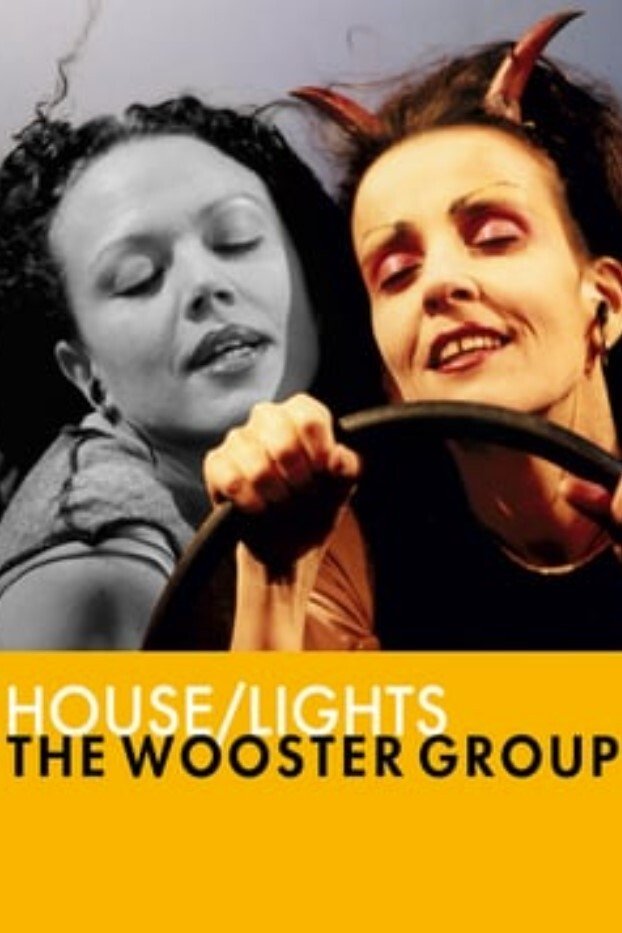
The OBIE-winning collision of Gertrude Stein's Doctor Faustus Lights the Lights with Joseph Mawra's B-movie classic, Olga's House of Shame.
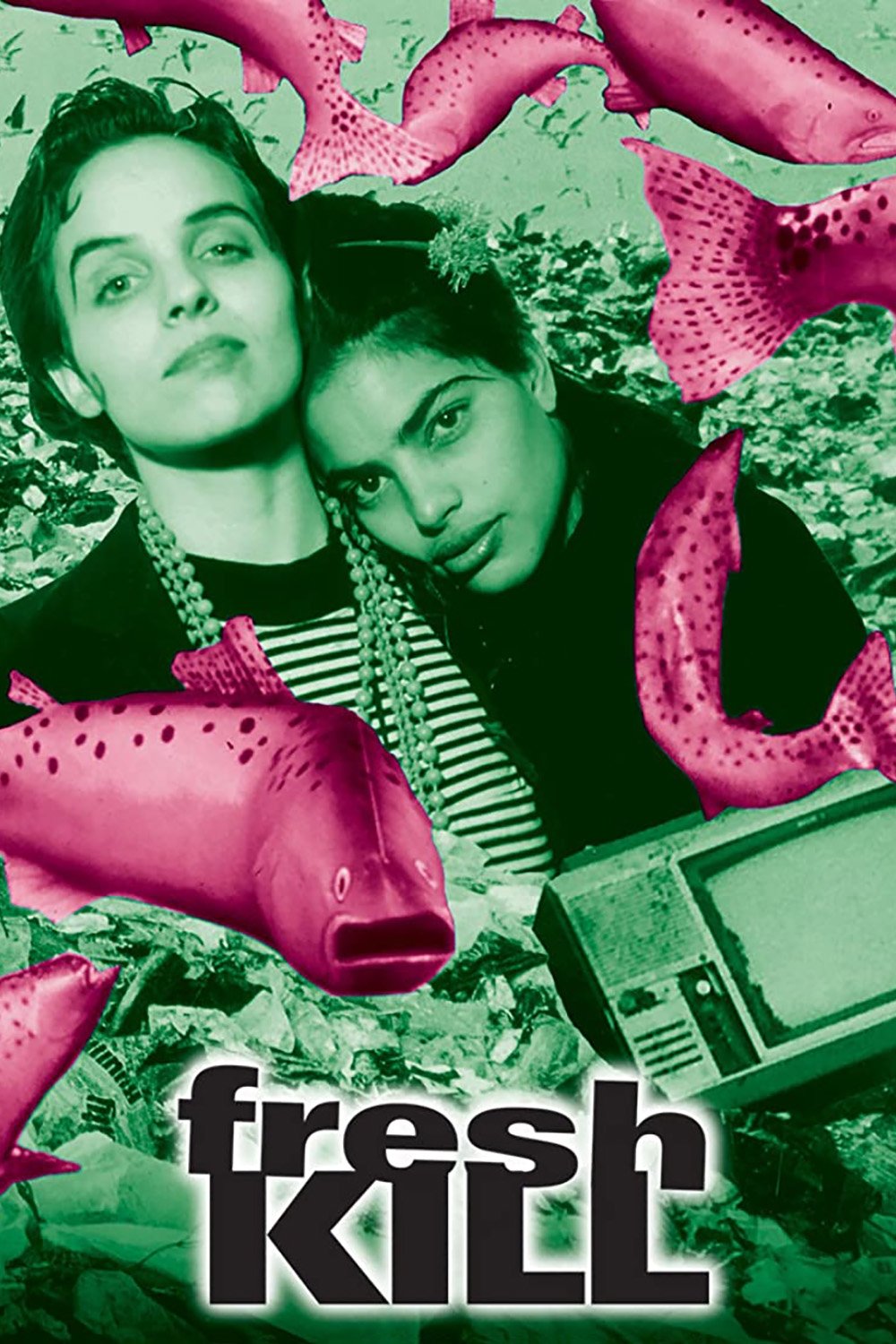
Shareen and Claire, a lesbian couple living on Staten Island, find themselves ensnared in a vast conspiracy involving a ghost ship of nuclear refuse, ominous television commercials, and deadly cat food.
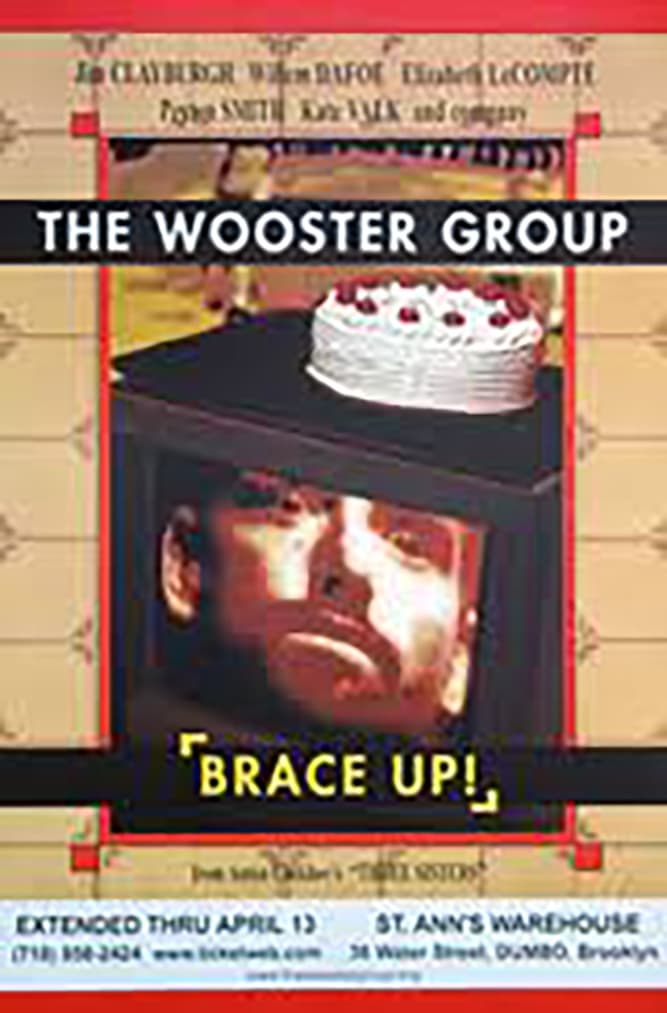
The Wooster Group's production of Anton Chekhov's Three Sisters, translated by Paul Schmidt and directed by Elizabeth LeCompte, with performances from Kate Valk, Peyton Smith, Scott Shepherd, Ari Fliakos, Anna Kohler, Beatrice Roth, Ron Vawter, and Willem Dafoe. This presentation of the 2003 production of BRACE UP!, designed by Ken Kobland and LeCompte, incorporates close-up recordings of the performers simultaneously with continuous wide-angle footage.
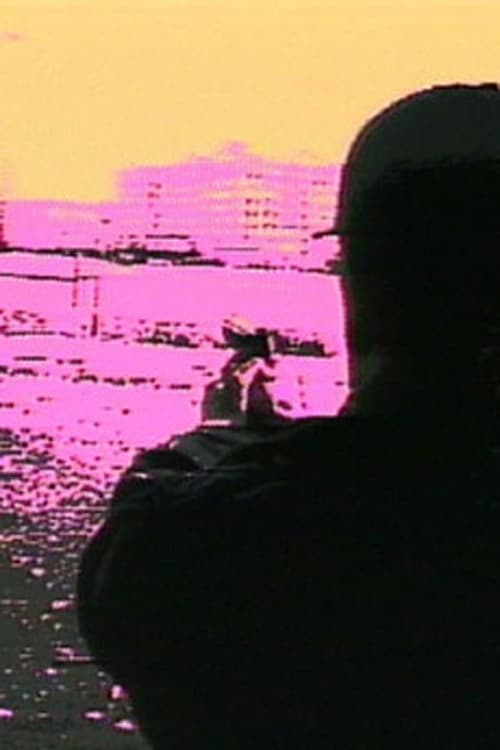
White Homeland Commando takes the familiar terrain of network action drama and tilts the playing field. Reminiscent of today's popular reality-based cop shows, White Homeland Commando offers a straightforward story: four members of a special police unit investigate and infiltrate a New York-based white supremacist organization. But that is where the commonplace ends. The teleplay is shot and edited in a highly textured visual style, the colors are subdued yet somehow garish, and the sound is deliberately just out of sync with the speaker's lips. Occasional static combines with jumps in the plot — the editing is reminiscent of a television viewer flipping channels.
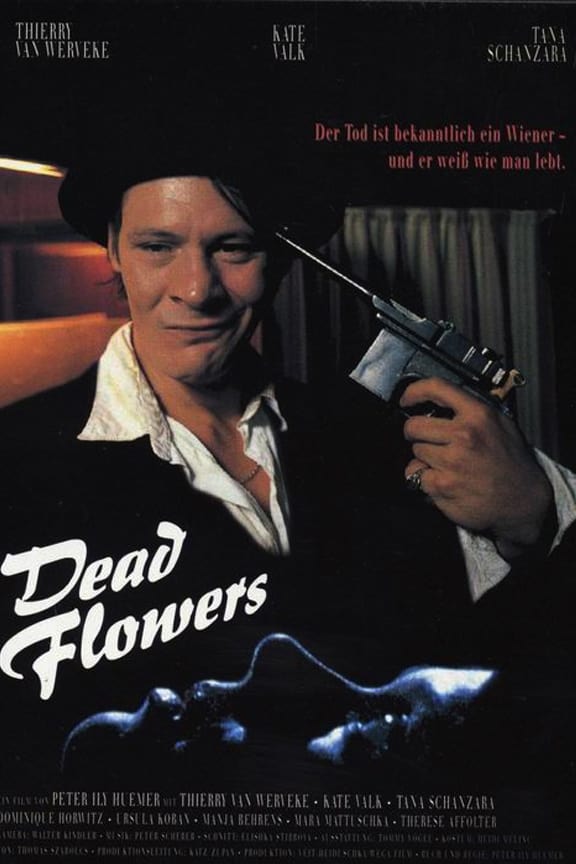
Alex (Thierry Van Werveke), a pest exterminator who lives with his grandmother, picks up a stranded woman (Kate Valk) who claims to be the American daughter of a spy.
By browsing this website, you accept our cookies policy.